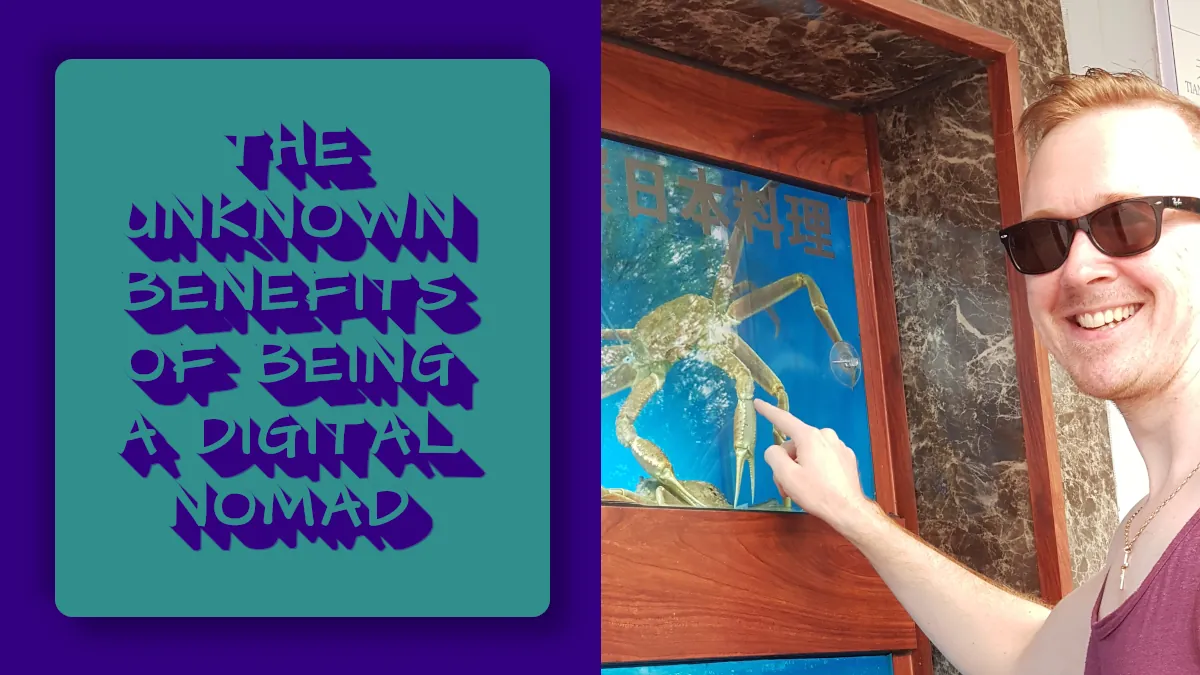Are you ready to give up living in a foreign country? I’ve been an expat, digital nomad, or slomad for over a decade and a half. My whole adult life has been spent overseas, in one foreign country or another. So I know how wanting to leave expat life behind feels. In this post, I explore why you may be considering leaving expat life and some challenges you may face on your repatriation journey.
I’ve spent years in China and other countries across Asia. I’ve learned languages and experienced local cultures deeper than any year abroad, or vacation could offer. But after a life-changing journey and at almost 40 years old, I’ve been wondering, “Is it time to go home?” Is it time to leave expat life?
My Expat Journey
My life abroad started when I moved to China. I was 21 years old and studying Chinese at a university in England. China was, for me, the ultimate destination. It was the culmination of my studies and a chance to use the language skills I’d developed.
I had never planned to move abroad permanently, but needless to say, my language abilities got better quickly, and watching my fast progress was addicting. So when I stopped learning Chinese, I promptly moved on and learned Tibetan.
I graduated from a Chinese university and found a job in Beijing. I inserted myself into the expat community, made new friends, frequenting expat bars and imported shops. Life abroad was exciting, interesting, and there was always something new to learn. After switching companies and being able to work from home, however, the idea of becoming a digital nomad made perfect sense.
We spent time in Thailand, Cambodia, Laos, Korea, Nepal, and India, flying back to China when our visas expired or we wanted to stay in one place for extended periods.
With a lifestyle that sounds so desirable, you might wonder why I want to leave expat life.
Reasons You Want to Leave Expat Life
Living and working abroad might feel like a never-ending adventure at first, but like everything in life, your new life abroad soon becomes routine, and you’ll start thinking about leaving your expat life. Here are some common reasons I hear from the foreigners and digital nomads I’ve talked to over the years and why I’m considering leaving expatriate living.
You Feel Homesick Since You Moved Abroad
The number one reason that expats return to their home countries is homesickness.
When you first arrive in a new country, everything is new and exciting: the food, the language, the people and places. There’s so much to explore and see. But after about a year, you’ve settled in. The excitement has worn off, and you miss your friends and family back home.
Some people might just pack up and go, but those that stay don’t stop missing their loved ones. For many people, the feeling intensifies until it becomes unbearable. In the expatriate community, we call this “ex-pat guilt.”
If you feel this way, it’s a strong signal that you are ready to leave expat life.
You Can’t Find the Stability for You Want Living Overseas
When you’re 21, single, and still living the life of a student, the last thing that worries you at night is finding stability.
But in your 30s and 40s and with a wife/husband and children to take care of, priorities change.
If you have been an expatriate for years and find that your life has changed considerably over that time, your new responsibilities may be the reason telling you to move back home.
- You want to buy a house.
- Give your children a stable social life and educational experience.
- You want to make plans for 5 or 10 years into the future.
- You want a pet without the worry that you can’t take them to your next destination.
- Perhaps you want a 9-5 and to keep regular working hours.
Raising third-culture kids is rewarding. Watching them thrive in different languages and understand the world in a way you never did as a child is incredible. But watching their friends leave the country time and again is heartbreaking.
Healthcare
Healthcare is a huge reason expats want to return to their home countries. When first moving abroad, the adventure and excitement feel like they will never dissipate, but years later, you realize that nothing lasts forever, including the health and vitality of youth.
We all get older, and health issues can creep up on you. Before you realize it, you need regular doctors’ appointments or surgery. While there are world-class facilities in many countries, when you take price into account, options can quickly become limited.
Back home, with a health system you’re familiar with and the proper insurance, you can feel confident that you’ll always have access to healthcare when needed.
During the Covid pandemic, for example, I could not buy medicines in local pharmacies due to new policies requiring a Chinese ID card number to make purchases.
Years ago, I broke my wrist and had it reset in a local hospital renowned for bone setting. After six weeks in agony and despite multiple x-rays and local doctors telling me it was fine, I flew back to the UK, where doctors told me it would need to be rebroken and set correctly. Two days later, I had a titanium bar in my wrist and could move it for the first time in weeks.
Careers, Business, and Making Money
When you live in another country as an expat, it can be easy to get into the mindset that your current circumstance is temporary. For years I thought, “I’ll stay for another year, then think about going home.”
One of the reasons for this “work abroad mindset” is that your life there usually depends on your visa. So while you have your job and work visa, you can live there indefinitely, but unless you’ve applied for citizenship, when you lose your job, you’ve gotta go. Retiring abroad is a challenge in most countries, even if you previously had a work permit.
Finding new jobs when abroad can be difficult, too, especially if the company must sponsor your work visa or if you’re used to a certain level of lifestyle. Expat packages usually include housing, travel, and other bonuses like medical insurance, not to mention higher wages. But when you find a job there locally, that all disappears.
The Challenges of Leaving Expat Life
Before you move to another country, there is a lot to consider, and for moving back home, it’s no different. In many ways moving back to your home country is harder than moving abroad because it isn’t an adventure, you already know the language and culture and (mostly) what to expect.
Reverse Culture Shock
After years in a foreign country, you find things back home aren’t how they once were. You don’t know how to do basic things that seem normal to everyone else. You’ve become a foreigner in your own country.
I notice this every time I go back to England; so much of regular daily life has changed, and I don’t know how to do the most basic things:
- Self Serve Checkout
- Contactless Payments
- Arranging Doctors and dentist appointments
- Driving again after years
But it isn’t only that you have a few things to learn about the new payment methods and a few apps to download. There’s another part of culture shock that is much more prevalent but harder to pinpoint. It’s the knowledge gap.
After years of expatriate life, you probably don’t know who sang that song or who the latest presenter of that show is. You didn’t experience the heat wave last year or remember the covid measures in place there. So you have a vast knowledge gap that spans every aspect of life, and there’s no way to catch up.
So when the conversation turns to something you missed, you have a choice.
- Tell them you were living abroad at the time (this is fun at first and is a great conversation starter, but it gets old quickly)
- Try to pretend you know; you’ve probably heard about it multiple times after the first month of being back, so it’s not that hard to fake.
- Appear to them as a weirdo who doesn’t know the most basic general knowledge.
If you have the type of personality that makes you care what people think, I’d recommend you go with option two most of the time. People will think you’re showing off if you constantly remind them that you lived abroad.
Everything’s So Expensive!
Of course, prices depend on where you live, but coming back is painful if you’re like me and moved to a country where things are cheaper. The cost of living even today in China is a fraction of what it is back home.
When I first moved to Tianjin, I’d buy lunch each day for 25c! To buy something similar back home costs 20x more!
It’s not only food either; rent, bills, tax, clothes, medicines, everything is much more expensive when you relocate to your home country.
You’d think wages were also 20x times higher, but they’re not.
“Am I Making the Right Decision?”
Self-doubt is a huge factor when you are thinking about leaving expat life. But, after moving all your belongings, family, and entire life to another country, it’s not like you can just change your mind and go back.
Before committing to moving countries, the best thing you do is go back for a holiday first. Then, live there for a month or two and get to grips with what daily life will be like back home. It will give you a better perspective and more time to process everything. And if you decide not to move back, you can just return to your expat life.












